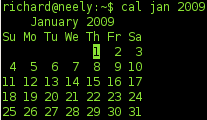NSA to "Screen" .gov Now, I Predict .com Later
 In my Predictions for 2008 I wrote Expect greater military involvement in defending private sector networks. Today I read a great Washington Post story titled Obama Administration to Involve NSA in Defending Civilian Agency Networks. It says in part:
In my Predictions for 2008 I wrote Expect greater military involvement in defending private sector networks. Today I read a great Washington Post story titled Obama Administration to Involve NSA in Defending Civilian Agency Networks. It says in part:The Obama administration will proceed with a Bush-era plan to use National Security Agency assistance in screening government computer traffic on private-sector networks, with AT&T as the likely test site...
President Obama said in May that government efforts to protect computer systems from attack would not involve "monitoring private sector networks or Internet traffic" and Department of Homeland Security officials say that the new program will only scrutinize data going to or from government systems...
Under a classified pilot program approved during the Bush administration, NSA data and hardware would be used to protect the networks of some civilian government agencies. Part of an initiative known as Einstein 3, the pilot called for telecommunications companies to route the Internet traffic of civilian government agencies through a monitoring box that would search for and block malicious computer codes...
The internal controversy reflects the central tension in the debate over how best to defend the nation's mostly private system of computer networks. The most effective techniques, experts say, require the automated scrutiny of e-mail and other electronic communications content -- something that commercial providers already do.
Proponents of involving the government said such efforts should harness the NSA's resources, especially its database of computer codes, or signatures, that have been linked to cyberattacks or known adversaries. The NSA has compiled the cache by, for example, electronically observing hackers trying to gain access to U.S. military systems, the officials said.
"That's the secret sauce," one official said. "It's the stuff they have that the private sector doesn't."
But it is also the prospect of NSA involvement in cybersecurity that fuels concerns of unwarranted government snooping into private communications...
The classified NSA system, known as Tutelage, has the ability to decide how to handle malicious intrusions -- to block them or watch them closely to better assess the threat, sources said. It is currently used to defend military networks.
You're thinking, "this article says NSA will not monitor purely private networks. What's the fuss?" Imagine you're the CEO, CIO/CTO, or CISO of a big company. You say "why is my company and our employees paying taxes so that the government can protect itself while my company is left outside the circled wagons?" The higher you go in corporate management, the more likely the only "security" that will be recognized will be "firewalls." So, you're going to have big-league corporate leaders telling the government that they want their companies "protected" too. This isn't really what is happening, but at that level it really doesn't matter.
The bottom line is that first the military protected itself, and now the military is going to help protect civilian government agencies. Critical private infrastructure will be next, followed by economically important companies -- think "too big to be 0wned." This will be interesting.
Richard Bejtlich is teaching new classes in Las Vegas in 2009. Late Las Vegas registration ends 22 July.



Comments
Personally I know of no company that would ask the government to protect them. That's a pretty naive comment. They don't want the government involved at all.
Also - I would like to talk with you about some security applications using tool optimizers like Gigamon or Anue.
Tim@oldcommguy.com